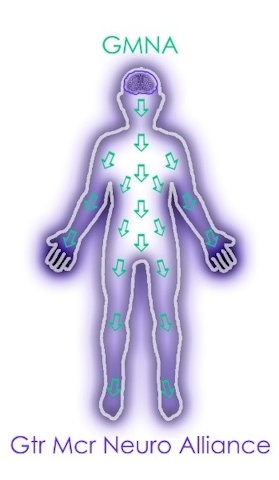Greater Manchester Neuro Alliance urges Labour to think beyond A&E
Date published: 27 September 2017

Greater Manchester Neuro Alliance
As councils try to save a further £1Bn from their annual budgets and CCGs appear confused by the rules, people with long term and complex needs are being abandoned and neglected according to the Greater Manchester Neuro Alliance (GMNA).
Deb Troops, chairwoman of the GMNA, said: “We have known for some time that health and social care workers are over ruled and side-lined when making decisions about the needs of their clients.
“People tell us that their care packages are being drastically cut without any notice or advice and increasing numbers of patients with identified clinical needs are being denied continuing health care or having it withdrawn in part and in some cases altogether.
“Abandoned and neglected are strong words but being left with no clinical care apart from a GP and A&E or being expected to go to bed at two in the afternoon because that is the last call of a support worker’s day is not how the Care Act 2014 says people have a right to be cared for.”
Their concerns are shared by two national reports - a survey by Community Care and the Care Support Alliance, the British Red Cross research paper ‘Prevention in Action 2017’ and the recent shocking revelations from the United Nations.
The survey found that two thirds of social workers who responded, said that decisions were regularly being taken “out of their hands” and that despite the Care Act, panels that are financially driven instead of including experts and those actively involved with individuals, are increasingly being used to cut care and support.
The British Red Cross says that budgets are being reduced and money ‘diverted towards operational costs’ at a time when local authorities need to invest in prevention and integration of health and care services. It also found inconsistencies between local authorities when defining the meaning of ‘prevention’, as well as varying interpretations of how to fulfil government ambitions for integration.
The UN's report on the Convention on the Rights of Persons with Disabilities revealed the Government's failure to protect disabled people's rights in the UK.
EHRC Chairman, David Isaac said: “This is a damning assessment by UN experts of the failure to protect disabled people’s rights across many areas of life in the UK. We have long urged the Government to make changes and the UN recommendations are further proof that immediate action must be taken.
“Drastic cuts to health and social care budgets have had an impact on disabled people’s ability to live independently; barriers to accessing justice persist and there are significant gaps in legal protection for disability rights.
“If the government is serious about delivering a fair and equal society it must involve disability groups to help design and implement new policies to ensure that disabled people are no longer treated like second class citizens."
Deb Troops said: “All of these documents show a worrying trend in how care and support for sick and vulnerable people is put together and how disabled people are seen and treated. It is clear that in the main, councils are failing to prevent, reduce or delay the need for care as set out in the Care Act and if at a local level things are being done, it isn’t fast enough or great enough to reach government-set targets by 2020.
“We know social workers are leaving the profession because they are worried about the impact on people and the pressures to keep cutting back especially on activities and transport. We’ve spoken to NHS Case Managers who believe that some very vulnerable and disabled people are being put at increased risk around their health and safety, with often life affecting changes influenced by cost. These decisions are not person centred and certainly not in peoples best interests.
“The rules and the law are clear that local authorities have a duty of care to meet the individual needs of people and not base this on what they can afford to spend. We understand that money is tight but the survey reveals that people have died as a result of cuts to their support.”
At the start of another difficult week for NHS England with the news that CCGs are ‘secretly’ cutting services through the STPs (Sustainability and Transformation Partnerships) and handing over power to non-qualified clerical staff in triaging patients, the GMNA is clear on what should happen next.
“Here in Greater Manchester we have a perfect opportunity through devolution to completely change the way we treat people with long term health conditions and those who are vulnerable and disabled. We’re especially concerned as understanding of Neurological condition, illness and disability is particularly poor when it comes to commissioning care and services and this news does not bode well for a future that supports and protects.
"There needs to be transparency about decision making, clarity on the process and an urgent review of the use of panels. Non-qualified staff must not be given the responsibility of making clinical decisions. Our people deserve to live not just exist and removing rehabilitation and restricting choice should not be an option.”




